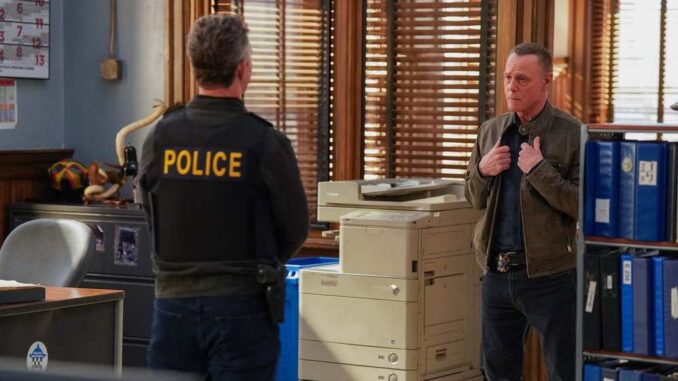
The Steel and Soul of Chicago PD: How Grit and Ensemble Forge a Loyal Fanbase
Chicago, a city etched with grit and resilience, provides the perfect backdrop for NBC's "Chicago PD." More than just a police procedural, the show has cultivated a devoted fanbase by delving into the complexities of law enforcement, driven by a compelling ensemble cast and a commitment to unflinching, sometimes morally ambiguous, storytelling. It’s the potent combination of these elements that has solidified "Chicago PD's" place as a prime example of a successful, long-running television drama.
The very DNA of "Chicago PD" is rooted in the harsh realities of urban policing. Unlike shows that sanitize crime and present clear-cut heroes and villains, "Chicago PD" embraces the shades of grey. The Intelligence Unit, led by the formidable Sergeant Hank Voight, operates in a world where lines blur and the pursuit of justice often requires bending, or even breaking, the rules. This isn't a world of pristine uniforms and perfect solutions; it's a world of informants, calculated risks, and the constant struggle to contain the city's underbelly. Episodes often feature morally challenging scenarios, forcing viewers to grapple with the consequences of the unit's actions, creating a sense of uneasy realism that keeps them engaged. We see the collateral damage of their pursuits, the ethical compromises they make, and the toll it takes on their personal lives. This gritty, unvarnished portrayal of law enforcement resonates with audiences seeking a more authentic and nuanced depiction of crime and its consequences.
However, the gritty storytelling would fall flat without a captivating ensemble cast to bring it to life. The actors embody their characters with a raw intensity, showcasing both their strengths and vulnerabilities. Jason Beghe’s portrayal of Hank Voight is particularly compelling. He’s not a typical protagonist; he’s a man wrestling with his own demons, driven by a fierce loyalty to his unit and a deeply ingrained sense of justice, even if his methods are often questionable. The audience is constantly challenged to reconcile his ruthlessness with his genuine desire to protect the innocent.
Beyond Voight, each member of the Intelligence Unit contributes a unique perspective and skillset. From the driven and compassionate Hailey Upton (Tracy Spiridakos) to the pragmatic and analytical Kevin Atwater (LaRoyce Hawkins), each character brings depth and complexity to the team dynamic. Their individual struggles, both personal and professional, are woven into the larger narrative, creating a sense of camaraderie and shared purpose that resonates with viewers. We see them support each other through the darkest times, challenge each other's choices, and ultimately function as a tightly-knit family unit in the face of constant adversity. This strong sense of ensemble is crucial to the show's success. Viewers become invested in the individual journeys of each character, creating a loyal fanbase that tunes in not just for the cases, but for the relationships and the evolving dynamics within the unit.
Moreover, "Chicago PD" excels at crafting compelling storylines that explore relevant social issues. Episodes often touch upon themes of police brutality, systemic racism, the opioid crisis, and the struggles of marginalized communities. While the show doesn’t shy away from depicting the complexities of these issues, it often presents them through the lens of the characters' personal experiences, allowing viewers to connect with the narratives on a more emotional level. By tackling these difficult subjects, "Chicago PD" sparks conversations and encourages viewers to consider different perspectives, contributing to a more engaged and thoughtful viewing experience.
In conclusion, the enduring appeal of "Chicago PD" lies in its commitment to gritty storytelling and its compelling ensemble cast. By delving into the moral complexities of law enforcement, showcasing the personal struggles of its characters, and tackling relevant social issues, the show has cultivated a loyal fanbase that appreciates its unflinching portrayal of the realities of policing in a complex urban environment. It’s a testament to the power of well-developed characters, nuanced narratives, and a willingness to confront difficult truths that has cemented "Chicago PD’s" place in the landscape of contemporary television. The steel and soul of Chicago are not just the backdrop of the show, but the very essence of its enduring success.
